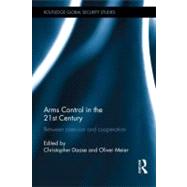- ISBN: 9780415698177 | 0415698170
- Cover: Hardcover
- Copyright: 6/21/2012
This volume evaluates the impact of coercive arms control efforts to curb the spread of weapons of mass destruction in the twenty-first century. A new paradigm in arms control is emerging, gradually replacing or at least amending the old idea that mutually agreed restrictions on armaments can improve international security. This new paradigm relies on coercion rather than cooperation, suspicion rather than trust, inequality rather than reciprocity. Hence, the definition of arms control as the Scooperation between antagonistic pairs of states in the military field provided by Hedley Bull needs to be amended by a definition of coercive arms control as a set of non-cooperative and non-reciprocal measures to restrict the weaponry of certain states or classes of states. The focus of this book is the relationship between cooperative and non-cooperative approaches, the role of military instruments, the importance of international law as a basis for non-proliferation responses, as well as novel institutional developments and new answers to deal with breaches of arms control obligations. The effectiveness of coercive arms control is assessed on a more empirical level by examining the contribution of specific counter-proliferation tools, such as sanctions and military interventions. While some argue that new instruments can complete and strengthen traditional, multilateral and inclusive arms control regimes, others maintain that conflicts and contradictions between coercive and cooperative arms control regimes will severely limit their effectiveness. This volume provides a forum for academics and practitioners from around the globe to discuss these developments in depth and to assess the specific strengths and weaknesses of these new instruments of arms control. This book will be of much interest to students of arms control, global governance, foreign policy and IR/Security Studies in general.






